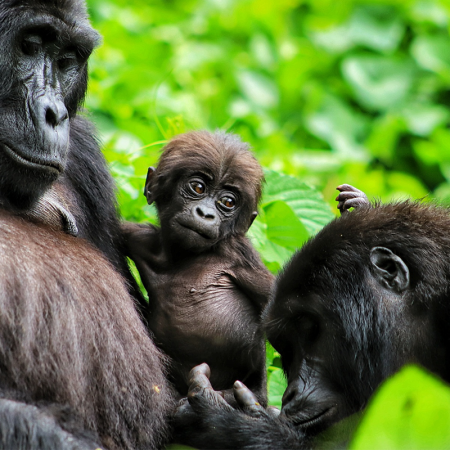Debates surrounding the ethics of safaris have swirled for years. They’ve been criticized for not being particularly environmentally friendly, as they desensitize the animals, dimming their natural instincts and disrupting their natural patterns. But on the flip side, they also serve to deter poachers, protect endangered species and fuel local economies. Luckily, in the year 2023, there are exponentially more ethical options and safari aspirers don’t have to go far to find them.
But recently there’s been an uptick in demand for another kind of (sustainable) safari — vegan safaris. Which begs the question: what the fuck is a vegan safari? Are they not all inherently vegan?
As fate would have it, the answer is no. And, according to National Geographic, it’s not just a matter of plant-based meal options, either. They also focus on “limiting exposure to animal products, minimizing impacts to the environment and offsetting carbon emissions from the journey itself.” (Which all feel like things we should care about anyway, no?)
The good news for vegans is that there are a plethora of outfitters offering such experiences, the first of which launched back in 2017. One of the outfitters, aptly named Vegan Safari Africa, doesn’t have a permanent lodge. Rather, in an effort to reduce their footprint, they partner with existing vegan-friendly lodges — most of which utilize solar energy and electric safari vehicles — when necessary. But the differentiators are largely in the details.
For example, they use a red-tinted light on game drives to minimize disruption. Others use cruelty-free toiletries and wool- and silk-free linens. Almost all avoid spaces that showcase animal skins or game trophies. There’s typically a limit on off-roading and a bigger emphasis on nature walks and flora, rather than just fauna. Some even offer vegan safari guides.
Ultimately, the consensus seems to be that they are sustainable, if not always entirely vegan. That said, if you’re that concerned with your own personal footprint, you likely aren’t flying to anywhere where safari might be an option anyway. Case in point: according to Freeflight.org, round-trip emissions per passenger from JFK to Cape Town International airport is the equivalent of 4.5 metric tons of CO2. Avoiding the trip is as climate friendly as being vegetarian for nearly eight and a half years.
For more travel news, tips and inspo, sign up for InsideHook's weekly travel newsletter, The Journey.

















